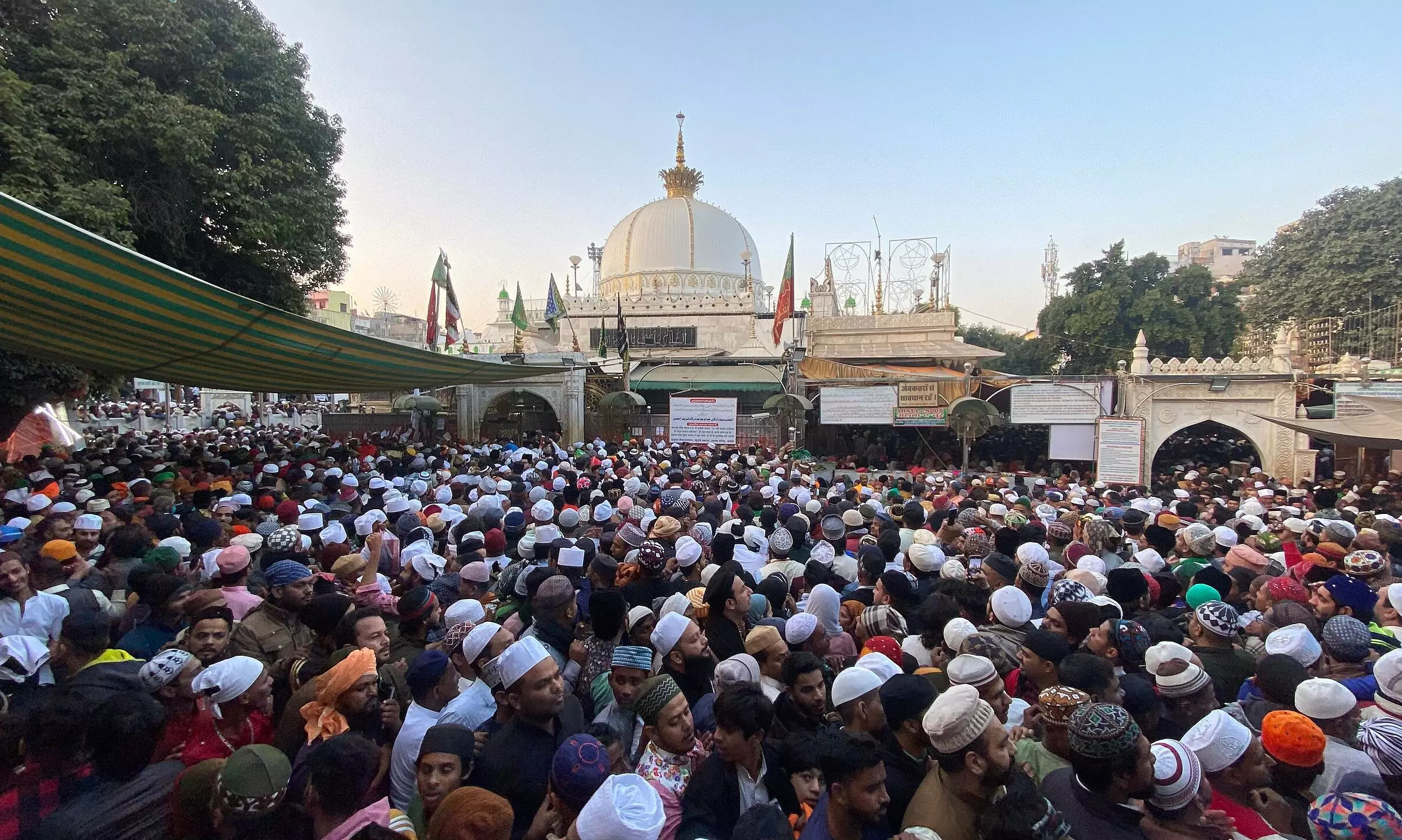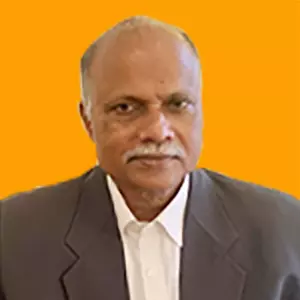
- Home
- India
- World
- Premium
- THE FEDERAL SPECIAL
- Analysis
- States
- Perspective
- Videos
- Sports
- Education
- Entertainment
- Elections
- Features
- Health
- Business
- Series
- In memoriam: Sheikh Mujibur Rahman
- Bishnoi's Men
- NEET TANGLE
- Economy Series
- Earth Day
- Kashmir’s Frozen Turbulence
- India@75
- The legend of Ramjanmabhoomi
- Liberalisation@30
- How to tame a dragon
- Celebrating biodiversity
- Farm Matters
- 50 days of solitude
- Bringing Migrants Home
- Budget 2020
- Jharkhand Votes
- The Federal Investigates
- The Federal Impact
- Vanishing Sand
- Gandhi @ 150
- Andhra Today
- Field report
- Operation Gulmarg
- Pandemic @1 Mn in India
- The Federal Year-End
- The Zero Year
- Science
- Brand studio
- Newsletter
- Elections 2024
- Events
- Home
- IndiaIndia
- World
- Analysis
- StatesStates
- PerspectivePerspective
- VideosVideos
- Sports
- Education
- Entertainment
- ElectionsElections
- Features
- Health
- BusinessBusiness
- Premium
- Loading...
Premium - Events

The evil that men do to gain the political upper hand lives on after their success, and threatens to savage the present and undermine the future
Multiple agitations are underway in different parts of North India to uproot mosques and build temples in their place, allegedly to restore the places of worship demolished by Muslim invaders and reclaim Hindu pride.
The agitations are led by Hindutva offshoots of different kinds, saffron-robed peddlers of hate often in the forefront. The term “anti-national” is bandied about frequently enough to drain it of meaning, and even of abusive power. But if anything merits to be termed “anti-national”, it is this raking up of alleged historical wrongs to mount violence in the present.
Zeno’s paradox
In ancient Greece, Zeno presented a number of so-called paradoxes to posit philosophical positions. One of them said that Achilles, swift as he was, could never overtake a tortoise in a race, if the tortoise were given a head start. He argued that Achilles had to first reach the tortoise’s starting point before he could overtake the amphibian. By then, the tortoise would have moved farther ahead. Then, Achilles has to reach this point, B, where the tortoise had reached by the time Achilles had reached the tortoise’s starting point, A. By the time Achilles reaches B, the tortoise would have moved to C. By the time Achilles reaches C, the tortoise would have crawled to D. And so on, endlessly. So, Achilles could never overtake the tortoise.
Also read: Sambhal violence: As hate is normalised, we as a nation need to feel again
Zeno was wrong, of course. Zeno did not understand that infinitely small quantities, of time or distance, add up to a finite, not an infinite number. The concept of limits, developed in differential and integral Calculus, had to make its entry into human consciousness for people to appreciate that the time interval that Achilles took to catch up with the tortoise was finite, even if it could be broken up into ever so many tiny, infinite number of intervals —the infinitesimally small intervals into which you could divide the total interval added up to a finite number.
Trying to dig up old mosques to determine if there were temples beneath them or if temple pillars were used to construct the mosque is like getting trapped in counting the number of infinitesimal intervals of time it took Achilles to reach the tortoise’s previous position. You could waste your entire life in that unproductive activity. Worse, unlike Zeno’s paradoxes, excavating historical wrongs and seeking to avenge them in the present leads to vicious mischief that vitiates the present and degrades the future.
Immoral and against the Constitution
Conflict, and the use of force, cannot always be avoided. If a man loses his mind, gets hold of a knife and goes on a rampage, he would need to be overpowered, and disarmed. He might be killed in the process. This is justified use of force.
But to break down a building where people of a particular faith pray is to disrupt their normal life, insult them, and show them that they are powerless to resist such attacks, and that those who follow their minority faith have inferior rights in the polity — they are, in fact, second-class citizens.
This is immoral. It is against the idea of equality and citizenship detached from faith and religion, around which the modern Indian state had been sought to be built by the freedom movement, and against the Constitution the freedom movement brought into being, seeking to accommodate and articulate the aspirations of the most diverse collection on earth of different groups who live together within a territory defined by the same borders. These groups speak different languages, follow different faiths, practise widely varying marital traditions, are segmented into hierarchies determined by birth into a particular caste, as well as by class. And yet, they still share an overarching affinity of culture, and unity achieved through struggle against colonial rule.
Also read: Sambhal violence: A page from Yogi Adityanath’s polarisation playbook?
Only a functional democracy can hold these diverse groups together. Only on the basis of social cohesion and harmony can these diverse collectives pull together, and build the national economy that would end poverty and ignorance and disease and inequality of opportunity, and enable every child to grow up realising their potential as a human being.
Trying to change the character of places of worship is incidentally also against the law, the Places of Worship Act of 1991. It is remarkable that lower courts repeatedly issue verdicts to initiate actions that lead to attempts to change the religious identity of places of worship, notwithstanding the law. But an Act made by Parliament is not a law of nature, and laws can be amended. But history cannot.
What cannot be undone
Shambuka, the Shudra killed by Rama for the temerity of performing austerities reserved only for the Brahman, cannot be brought back to life. Nor can Ekalavya’s severed thumb be regrown. On finding out that this Nishada (hunter) boy had acquired skills in archery rivalling those of his favourite pupil Arjuna, and that he had done so by listening in, on the quiet, on Drona’s lessons for the Pandavas and the Kauravas, the teacher asked the youth to cut off the digit without which the bow could not be strung, nor the bowstring drawn back with the arrow notched on it. Caste oppression in the past, legitimised by the Hindu order and practised for centuries, cannot be undone today.
Also read: Rajasthan court admits plea claiming Shiva temple in Ajmer dargah
The conversion of local gods in India’s diverse precincts into Hindu deities and their adoption into the Hindu pantheon, meant to assimilate these little traditions and their primordial gods into a grand Hindu narrative, cannot be undone. The transformation of the Tamil lands’ favourite god, Murugan, into Kartikeya, the son of Parvati, or of Kerala’s favourite god, Ayyappa, a forest-dwelling god, into a son of Hari and Hara (Shiva), is here to stay. The conversion of Buddhist Viharas into Hindu temples, and of the Jain tradition into a minor stream subordinated to Hinduism are virtually irreversible.
Salvation lies in integration
Christianity and Islam made their way to Kerala as part of the commercial and intellectual interaction between the Middle East and coastal Kerala. But Islam found its way to North India in the wake of conquests by Muslim invaders. Invaders impose themselves on the people they have conquered. It is conceivable that some local temples to Hindu gods were converted into mosques. New mosques in designs familiar to the conquerors would have been built with greater zeal as well.
As large a proportion as 95 per cent of the indigenous population of the Americas was killed off by Europeans, discoverers, and subsequent conquerors and settlers, particularly by the germs they brought with them. Can this be undone?
Those who go down rabbit holes chasing historical wrongs waste their own time and energy. They destroy social harmony and endanger the security of minority groups, inviting a backlash. The resultant conflict spawns violence, and could even unravel the threads of unity that bind assorted Indian identities, beyond faith-based groups. Such schism would hamper prosperity.
Also read: Sambhal mosque survey: SC bars trial court from passing orders till HC verdict
In the interdependent, globalised world, India’s would-be avengers of historical wrongs throw red meat to newly politically-empowered —thanks to the rise of Trump—defenders of Christendom and champions of democracy outside America, who coalesce in their opposition to nations that curb religious freedom and, in the process, deviate from democracy.
Concepts from integral calculus solved Zeno’s seeming paradox. India’s salvation lies in national integration, not in sectarian politics.
(The Federal seeks to present views and opinions from all sides of the spectrum. The information, ideas or opinions in the articles are of the author and do not necessarily reflect the views of The Federal)


